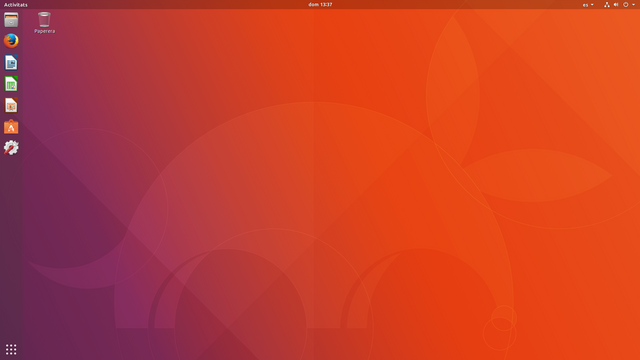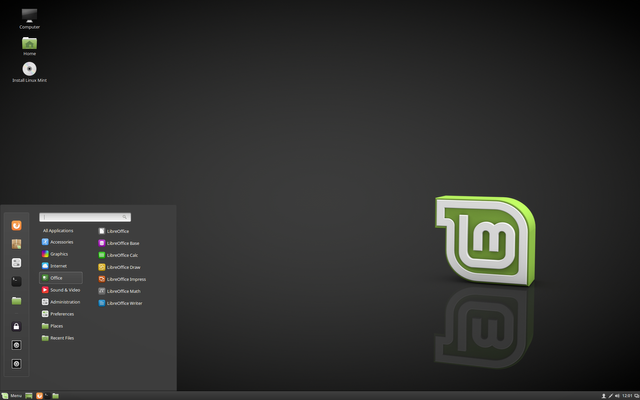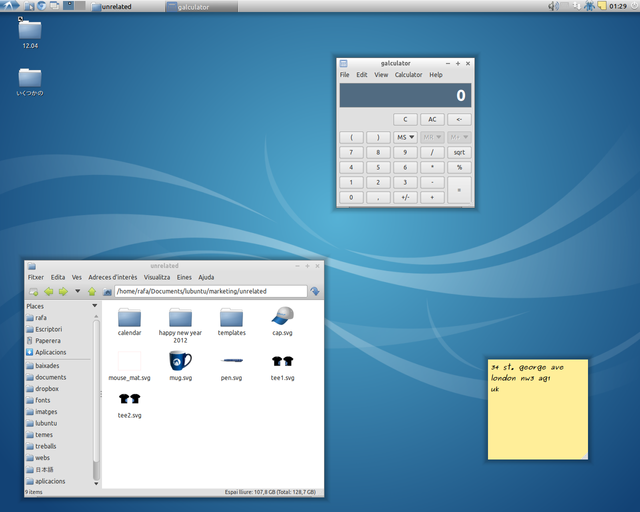Getting Started with Linux | From Zero to Linux Expert #1
Hello my dear readers, today, I finally start off with the first post of the series I have been preparing since I joined Steemit. As an old Linux user with more than 10 years of background, I want to share all my information accumulated over these years and create a fully functional blog which takes readers from zero to be a Linux Expert.
Since I know that the journey of Linux sometimes can be tough and the learning curve is steep, I write this series to be easy-to-consume even though it is also prepared for advanced Linux users with lots of key information and experiences.
By the way, feel free to jump to any section since it is a long read.
From Zero to Linux Expert
What will these articles cover?
Starting with this article, I will cover topics for involving and getting used to Linux environments. Those topics includes:
- What is Linux, Open Source and its History?
- Why should Linux be used?
- Linux Distributions and How to Choose them
- File System and Installation
After this very first post, the series will contain customization of Linux distributions with desktop environments, windows managers, panels and tweaking tools, furthermore there will be tricks probably you can't find somewhere else about shortcuts, package managers, configuration and building repositories. Those are already documented in my files and almost ready to share with you folks. You will be amazed how Linux environment can make everything easier with enough tweaking capabilities.
Format
For keeping the series easily readable, I will remain loyal to some formatting details I created. Since it's hard to prepare a document for both beginner and advanced users, I seperate some technical and detailed information from the mainstream by putting wildcards instead and explaining them at the end of the post.
- This is an example sentence with wildcard.[1]
Additionally, for topics need very detailed explanation, I will provide a link to a tutorial mostly written by myself. This is needed for complete comprehension on critical subjects.
Besides, all the links provided for more information from Wikipedia is linked instead to WikiZero which is uncensored, really free version of Wikipedia to let readers access information from countries that Wikipedia is blocked.
Getting Started with Linux
Linux and its History
Linux is a family of operating systems using the kernel with the same name, Linux Kernel, which is created by Linus Torvalds in 1991. It is stated by the creator that Linux is created because there was no free and open source kernel available at the time he started to write his own since UNIX is sold as a proprietary software and GNU Hurd wasn't ready.
The Biggest Differences
Linux is an Open Source Software
Linux kernel is a fully open source software which means its rights to read, modify and redistribute are provided to anyone for any purposes. You can simply reach its source codes and have a look at by visiting the project, on GitHub, a hosting service for files using the version control system Git, which is also written by Linus Torvalds.
Open source kernels like Linux, almost completely remove the boundaries for the operating system based on it. Provided rights lets and attracts more and more users to contribute to the project in many different aspects. This contributions grant:
- Faster development with unlimited number of developers
- Better security since exploits are not only realized by hackers
- More variation and customization
- No need to pay for software quality
Linux Distributions
Being an open source kernel gives Linux maximum opportunities to be tweaked, modified and redistributed for satisfying many different needs and preferences. Therefore, developers from all over the world created uncountable numbers of Linux based distributions. You may not know, but probably you are using a Linux based operating system on your phone since Android is also a Linux based operating system. Not only computers and smartphones, most of the operating systems for IoT innovations, such as Raspbian, Brillo, and Huawei LiteOS are also open source and based on Linux.

image source
In this starting blog post for the series, I will only cover some of the biggest Linux distributions for computers. Those are created for best user experience and ease of use with selections and modifications on "Display Managers", "Desktop Environments", "Window Managers" and "Package Managers" which I will describe in detail in my next blog post.
How to Choose One?
In all these years I have lived with Linux, I tried numerous different distributions that I don't even remember many of them. And I can say that you will probably never find the complete satisfaction for the exact operating system and variation, instead, you will always change it a bit even if it fits 99% to your needs. And I guess, it is my favorite feature in Linux, consider that, "It presents operating systems that even fits your daily mood."
Let me introduce you to some of the most beginner friendly major Linux distributions.
Ubuntu
Ubuntu is one of the biggest distributions and has the biggest community of all. Therefore, beginners will almost always find solutions in Ubuntu Forums for problems they face. With its characteristic design and simple package management interface apt, it is serving as one of the most user friendly operating systems for years. Additionally, a significant percentage of the most popular distributions are based on Ubuntu, such as Kubuntu, Lubuntu and Xubuntu.

image source
Pros:
- Unique design
- Huge community
- Ease of use
- Simple package management interface
Cons:
- Low customization
- Not the fastest
Linux Mint
Linux Mint is the most popular Linux distribution according to the current statistics from DistroWatch. It is stable and provides an out-of-the-box experience with browser plugins like Flash and components like Java. Despite this, I never got warm towards Mint because of its dated graphics and Windows-like design. But this will be an important reason for some of the newcomers to pick it.

image source
Pros:
- Relatively stable
- More Windows-like design (for beginners)
- Out-of-the-box experience
- Comes with Java and some browser plugins
- Many desktop environment options
Cons:
- Less visually appealing design
Lubuntu
Lubuntu is an Ubuntu-based distribution built to be lightweight and compatible with old computers. It is probably the most lightweight one among beginner-friendly operating systems. Actually there is not much to talk about Lubuntu since it is simple, lightweight and it works as it is. I have Lubuntu installed in one of the computers at home, and it is fast as lightning.

image source
Pros:
- Very lightweight
- Compatible with old hardware
Cons:
- Dated graphics
Recommendation
My recommendation for beginners would be Ubuntu for a fresh start of Linux experience. After all these years, it is still one of the operating systems I use because: it's simple and elegant. For older computers, I would recommend trying Lubuntu or Ubuntu LTS(Long Term Support) version, which is 16.04 at the moment.
Installation
Linux based operating systems have almost the same installation method which is pretty easy. You should only download one of the distributions you like, and use one of the following options depends on your operating system you are already using.
- Create a bootable Flash disk using the ISO image of any distribution by using "Rufus" on Windows or using "dd" command[2] on Linux
- Boot the flash disk and follow installation steps
Conclusion
With this first post of "From Zero to Linux Expert" series, you learnt Linux and open source, their advantages, major linux distributions and installation of them. Before my next post into the Linux journey, you can be ready for learning details on Linux architecture and customization. Until that time, I recommend you to play around in Linux environment and get used to it. If you have questions or suggestions, feel free to comment them. I will try to answer them one by one and help more people on using Linux and climbing the ladders towards expertise.
Series
#1: Getting Started with Linux
Wildcards
[1]: Example Wildcard
[2]: One line dd command where /dev/sdc is the device path for your flash disk:
sudo dd bs=4M if=input.iso of=/dev/sdc conv=fdatasync
Posted on Utopian.io - Rewarding Open Source Contributors
As someone who -previously- learned about linux from you, and a current user of linux, I am bookmarking this. I am sure that my cousins will learn a lot from it... During that time I couldn't have found end-user friendly articles enough to cover up my needs. Without you, I would have stuck in my previous system - which I dislike now due to it's insufficiencies in many areas which I haven't realised before-. And now you are making a post series about it. This was a need for all of us.
Thank you! This kind of comments is being a strong motivation for my further contents. I will continue to share and teach my experiences as I promised, there are many who should be introduced to Linux.
And thank you again for the love of Tux the penguin!
Hey @roj I am @utopian-io. I have just upvoted you!
Achievements
Suggestions
Get Noticed!
Community-Driven Witness!
I am the first and only Steem Community-Driven Witness. Participate on Discord. Lets GROW TOGETHER!
Up-vote this comment to grow my power and help Open Source contributions like this one. Want to chat? Join me on Discord https://discord.gg/Pc8HG9x
Thank you for the contribution. It has been approved.
You can contact us on Discord.
[utopian-moderator]
Congratulations! This post has been upvoted from the communal account, @minnowsupport, by roj from the Minnow Support Project. It's a witness project run by aggroed, ausbitbank, teamsteem, theprophet0, someguy123, neoxian, followbtcnews, and netuoso. The goal is to help Steemit grow by supporting Minnows. Please find us at the Peace, Abundance, and Liberty Network (PALnet) Discord Channel. It's a completely public and open space to all members of the Steemit community who voluntarily choose to be there.
If you would like to delegate to the Minnow Support Project you can do so by clicking on the following links: 50SP, 100SP, 250SP, 500SP, 1000SP, 5000SP.
Be sure to leave at least 50SP undelegated on your account.
thank you mate, I needed something like that..
What a GREAt post - nice to see a promotion of Linux like this.
Thank you! Nice to see people appreciate it.
It is really time that this old bird becomes a grownup and learns how to use linux ... coming spring I am gong to finally do this ...